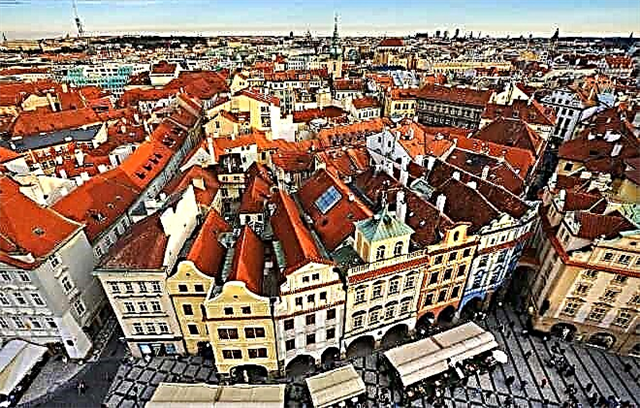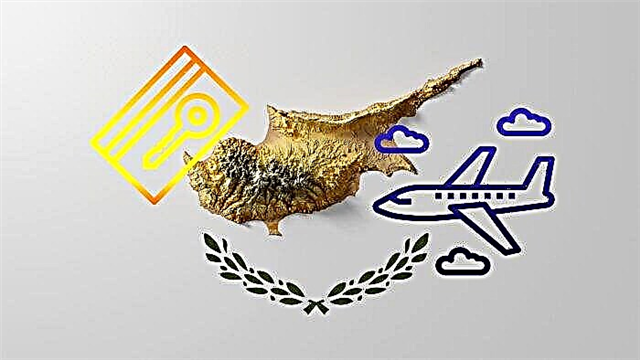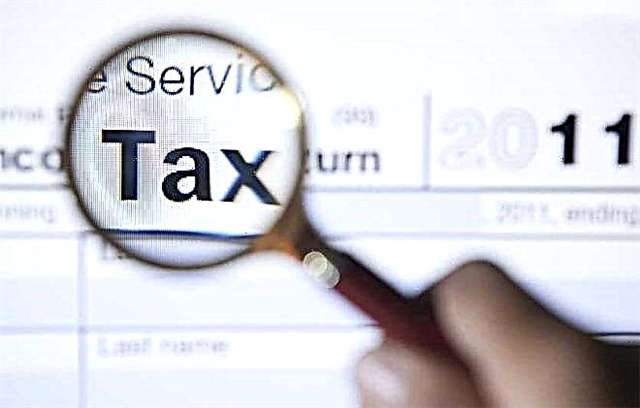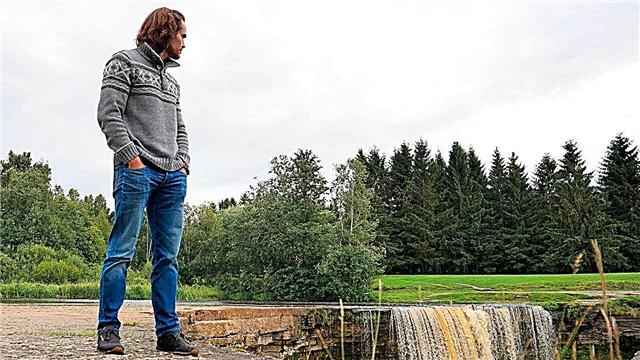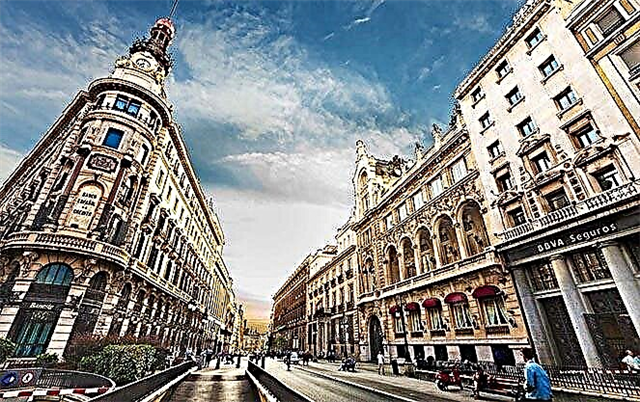Spain is one of the most popular European countries for international students. Many boys and girls go here for high-quality professional training and a diploma, which will be quoted all over the world. To this end, many foreign citizens send their children to Spanish schools as early as adolescence, rightly believing that the education system in Spain, which is noticeably different, for example, from the Russian one, will allow them to prepare in the best way for further education.

The specifics of the education system in Spain
The educational system in Spain includes several successive stages. Some of them are mandatory, others are voluntary.
Educational stages in Spain:
| Stage of education | Spanish name and features | Required / Optional |
|---|---|---|
| Preschool education | Escuela Infantil (for children 2 months to 3 years old) | Not necessary |
| Aula Infantil / Preparatory classes (for children from 3 to 6 years old) | ||
| School education | Primaria (6-12 years old) | Necessarily |
| Educación Secundaria Obligatoria (12-14 years old) | ||
| Bachillerato (14-16 years old) | Not necessary | |
| Secondary special education | Ciclos Formativos de Grado Medio | Not necessary. Can be obtained instead of Bachillerato. |
| Ciclos Formativos de Grado Superior | ||
| Higher education | Educación superior | Not necessary |
In addition, Spain has a well-developed adult education system - the Escuela de Adultos evening schools.
Basic primary and secondary compulsory education in Spain until the age of 16-17 is free, subject to attendance at a public institution. And not only for the children of Spanish citizens, but also for those whose parents are foreigners.
Spanish kindergartens: conditions and program of classes
There is a limited number of state kindergartens in the country, so parents most often place their children in private preschool institutions, of which there are much more. The cost of visiting the latter depends on the range of services provided by them (quality of food, the number of activities with children, equipment), as well as their funding by supervising organizations.

The preschool education system includes music, dance, drawing, teaching reading and writing, learning a foreign language (usually English), acquaintance with the basics of mathematics, logic and ethics. Walking in the fresh air and a quiet hour are required. The school day lasts from 6 to 10 hours.
A distinctive feature of working with children in a preschool educational institution in Spain is the emphasis on the development of skills of independence and communication. Small groups - 5-12 people. The schedule is flexible, which allows you to bring your child to the kindergarten for 2-3 hours during the habituation period.
Basic school education in Spain
Primary school education lasts 5 years. Moreover, all classes are taught by one teacher. The program is mainly focused on the study of the Spanish language and literature, natural history, mathematics.
A distinctive feature of Spanish basic education is a serious emphasis on foreign languages (they begin to be studied by children from the age of 8): English, French, Italian and German. From the age of 10, children begin to learn a second foreign language.

In secondary school, lessons are taught by different teachers. Testing is carried out annually, according to the results of which students either continue their studies or remain for the second year. If the child has not passed 2 subjects (but no more), he is given the opportunity to retake them in the fall.
High school lasts 3 years. Students must study Spanish and English, religion, philosophy, ethics, history, physical education.
In addition, two more subjects are added to them: Latin, anatomy, physics, chemistry. In the second year of study, there is an opportunity to start studying a specific specialty.
The final exams at school are at the same time the entrance exams to the university.
The academic year starts on September 15th and ends on June 15th. It is divided into 3 semesters of 11 weeks:
- from September to January;
- from January to Easter (according to the Catholic calendar);
- from Easter to mid-June.
Schools have a 10-point grading system. Lessons last 40-45 minutes. Classes start at 9.00 or 9.30, and can end at 14.00 and even at 17.00.
The specifics of vocational education in Spain
Studying in Spanish Ciclos Formativo (secondary specialized educational institutions) takes 2 years. Admission is possible immediately after successful graduation from high school. Upon graduation from Ciclos Formativo, graduates are eligible to enter higher education on an equal basis with those who graduate from high school.
The training program is designed for 1300-2000 hours. At the same time, 25% of the study time is devoted to practical training.
Graduates can receive two types of diplomas:
- specialist (técnico) - gives the right to continue training at the Bachilerato;
- chief specialist (técnico superior) - entitles you to admission to a university based on the results of final exams.
Education in secondary specialized educational institutions in Spain is available in more than 140 specialties.
Ciclos Formativo in Spain does not provide higher education and can be equated with the usual technical schools and other specialized secondary educational institutions.
Getting higher education in Spain
Tuition in Spanish universities is paid. At the same time, students can be trained under the MBA (Master of Business Administration) program. It is an international business school that provides knowledge in the field of personnel management, business management, management decision making and other areas. The training takes 2 years.

In the process of obtaining higher education, Spanish specialists can obtain the following degrees:
- bachelor's degree (grado) - awarded after 4 years of study and gives the right to continue education in the chosen specialty;
- master (master) - is assigned after passing a narrow specialization for 1-2 years and indicates a readiness for research activities;
- doctor (doctorado) - means scientific activity for 1-2 years with the subsequent protection of the results of their research.
Upon completion of training, two documents are issued: a diploma of graduation from a specific university and an international certificate confirming the acquired qualifications.
Special types of Spanish education
Enseñanzas de régimen especial is a special category of Spanish education, which can be obtained by both citizens of the country and foreigners, regardless of their age and professional background. Moreover, the development of programs can be started by them even during the period of attending preschool educational institutions.
Based on the results of passing tests and exams, it is possible to obtain a diploma equivalent to a diploma of higher education.
Training is available in such areas as:
- art;
- design;
- preservation and restoration of cultural heritage sites;
- music;
- dance;
- theatrical art;
- foreign languages.
Tuition fees in Spanish kindergartens, schools and universities
All private educational institutions in Spain are paid. State ones can be called conditionally free, since visiting them will require certain fees and investments. You will have to pay for education in higher educational institutions.
However, there is a developed system of special scholarships and grants that allows students who study well to cover almost the entire cost of education.
Estimated cost of studying in Spain
| Step | Pay for what | How much to pay |
|---|---|---|
| Preschool education | Individual approach to the child | 200-500 € per month |
| high school | Mandatory contributions, textbooks, uniforms, meals | 600-900 € per month Textbooks and form - 200-300 € per year |
| Secondary special education | Education | 1 000-3 300 € per semester |
| Higher education | Education | 1,700-11,000 € per semester |
Summing up
The country has implemented a system of free provision of services within the framework of preschool and basic school education. The Spanish system of secondary specialized education provides ample opportunities for obtaining a particular specialty, and many ongoing programs of international cooperation are an excellent chance for foreigners to enter a Spanish university and become the owner of an international diploma.


